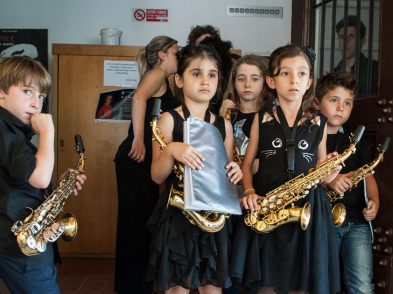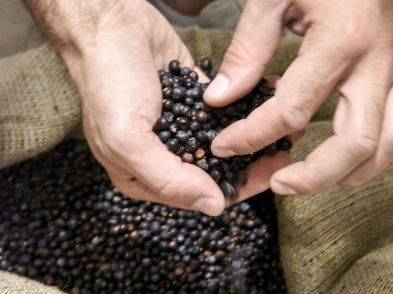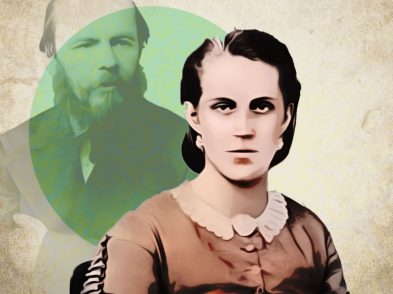Walking down the marble steps, a large arm stretches out toward me and I instantly recognise him from his photo. Lawrence Osborne is a tall man, with elegant dress and a deep, warm voice. “Should I wear a jacket for this?” he asks, and we look outside, where Florence is soaking in a hard rain. He has just come from his home in Bangkok, where, in early monsoon season, the rain is worse, he says. We grab a hotel umbrella and head over to the Gabinetto Vieusseux at Palazzo Strozzi.
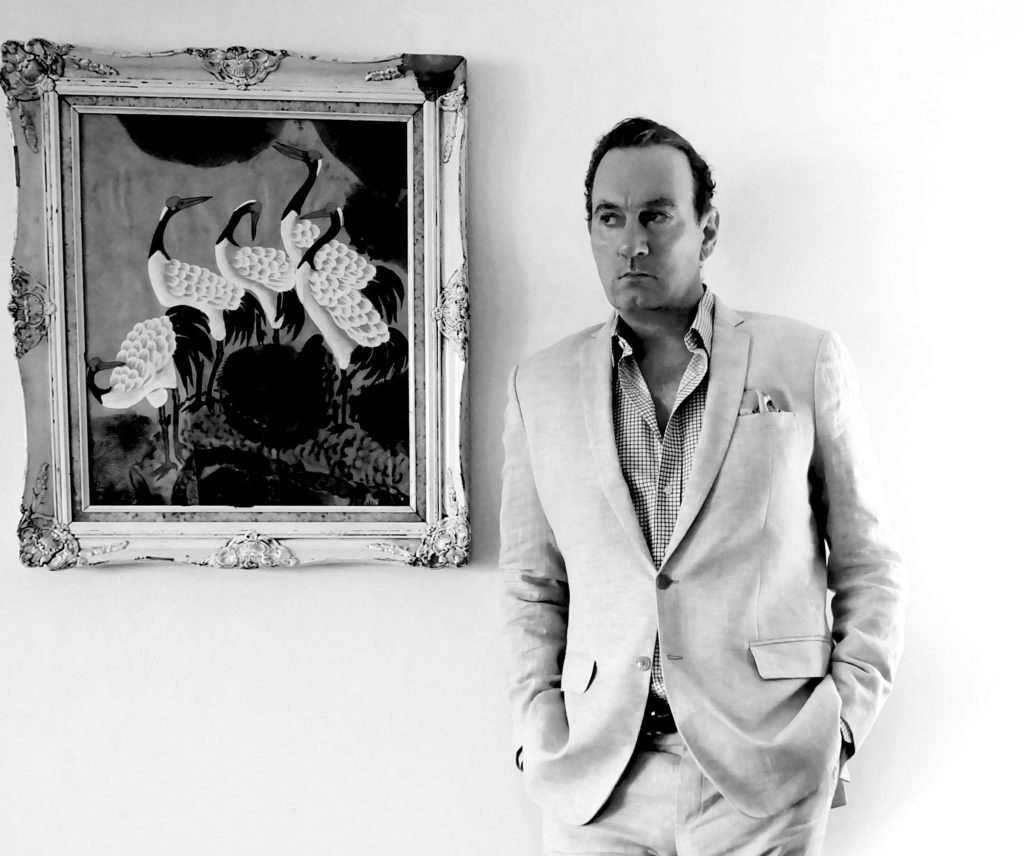
Lawrence Osborne, the author of critically acclaimed novels The Forgiven, The Ballad of a Small Player, Hunters in the Dark and Beautiful Animals
It’s a Thursday afternoon, the opening day of the 12th annual Festival degli Scrittori in Florence, which over the first weekend of May hosted talks and presentations from a phenomenal cast of rich literary colours, including Margaret Atwood, the most recent Pulitzer prize winner Andrew Sean Greer and director Volker Schlondorff. The Festival, sponsored by the Santa Maddalena Foundation and its impressive president Beatrice Monti della Corte, was held in honour of the Von Rezzori prize for the best novel translated into Italian the previous year, chosen from among five finalists.
Osborne was one of these five to be shuffled around town in between events and sporting significant jet lag from the 12 hour flight from Thailand. I was his chaperone and personal assistant, ensuring that the critically acclaimed author appeared in the Palazzo Vecchio’s Sala d’Arme for the Saturday awards ceremony and the cenacolo of Santa Croce for Atwood’s lecture. I was told beforehand that these writers were a fun gang, that they would easily swayed by the various Florentine temptations and that getting them to their appointments may at times take a little convincing. Osborne commented that writers are a competitive bunch, with some irony, when I told him the other contestants were staying in the same hotel. But he does not seem especially ambitious about the prize, knowing that Man Booker winner George Saunders would probably take it. He was indeed right, as it happened.
Osborne’s company turned out to be an immense pleasure. He is a funny man, with an immense knowledge of person and place. He’s hailed as a kind of modern Graham Greene, part of that expiring species of nomadic writers, having lived in very different countries for various lengths of time. The contesting book is Cacciatori Nel Buio, or Hunters in the Dark, translated with Adelphi. I read it after our time together, a lovely little thriller set in Cambodia about the allure of escaping, and disappearing from, a life of Western stasis.
“I practically grew up here,” he says when I ask him about Florence. He lived in the centro storico between the late ‘70s and early ‘80s, learning Italian at the Lorenzo de’ Medici Institute. I already catch his strong familiarity with the language in his quick and informal exchanges with staff at the Hotel Porta Rossa. “Funnily enough, I come here for my shirts,” he laughed with a distinct giggle that becomes easily contagious. He spoke of spending his morning in the Sant’Apostoli church, the eleventh-century structure, one of the city’s oldest, before venturing into the old Roman baths opposite for a visit to his friend Simone Abbarchi. Abbarchi is one of the most respected tailors in town, and this sometimes overlooked corner just off the lungarno is an obvious destination for Osborne. “When you get a chance, you should definitely pick up one of his shirts.” I think of my budget, but nod in agreement anyway.
Osborne says the city is virtually unrecognizable from when he first came. “It’s a tourists’ playground now.” We are almost exclusively gravitating within the Strozzi field, after all, so he’s right. “When I was here you would see horse and cart rolling down the alleyways; it was much more feral, more communist.” We dodge selfie sticks and sheepish hoards through the via Monalda. “It used to be far more contadino.” He’s nostalgic, but it is clear that he remains enamored with his former home, especially when we entered the beautiful dust of the Vieusseux library with widened eyes.
After his talk, the writer remarked how pleasant it is to be interviewed by the Italian press. “They always ask intelligent questions.” He remarked on the widespread literary culture in the country, and it’s true: Italy remains among the countries with among the greatest translation traditions in the world. On a separate occasion, American writer and member of the Von Rezzori Jury, Edmund White, opined to me that if he were an alien coming down to earth and had to learn one language to access the world’s literature, it would have to be Italian.
That evening, amazingly still the first day, Osborne invited me to Trattoria Cammillo with his friend Peter Marangoni and his Adelphi editor Benedetta Senin. According to Marangoni, it is the only spot where you can find the veri fiorentini. I knew better than to contradict him, although my mind flashed to the trippaio of San Frediano on Tuesday lunchtime. I had never been to Cammillo, and I jumped at the opportunity. In the warm light of the first room—a table was procured with no trouble, we were told to bring cash—we sip the house Chianti. “It’s not quite a vino da meditazione,” Osborne says with a cheeky grin, “but I suppose it’ll do.”
We indeed eat very well. Pillows of burrata, healthy sized anchovy fillets, fried artichoke flowers. As a main course, Lawrence and I both have the veal scaloppine and they melt between our lips without much difficulty. To finish, a hangover from his French years, Osborne orders a plate of cheese; the gorgonzola proving a strong ticket to delicious satisfaction. I suppose it is partly true about the clientele, tables filled with old Florentine families. In between courses, Marangoni introduces us to a group of Corsinis. He seems to know everyone in the place, they know what he enjoys, and they cut us a great deal. I escort Osborne back to his hotel and the Via Tornabuoni is deserted. “It is actually very beautiful in the late evening, isn’t it?” he says, with all-round implicit agreement.
The next afternoon, we taxi to the Florida bookshop in the Rifredi area, where Osborne is due for a book signing. We cut it close and the cab rolls up at five to the hour, but somehow the shop is still shut. We laugh, half in embarrassment, but fully in awe of the relaxed Florentine charm. La pausa pranzo. He orders a spremuta in the neighbouring cafe as we wait.
The crowd that shows up for the signing is a small but very enthusiastic one, listening to Osborne’s fast-paced stories about Bangkok and the notion of his own kind of travel writing. One young woman in particular, writing her thesis on his work, is entirely fixated. Her wide, beautiful, brown eyes are completely hooked on the seated writer, as he chats about the English in Tuscany. “There has to be an Englishman in every little village in the world. The weird Brit on the hill, it’s incredible! Personally, I find London intolerable,” he says, “but it remains my first home, I suppose.” He speaks of living in Panzano for a few months one autumn decades earlier. “It really felt like the outback in those years. No foreigners and lovely wine.” He pauses for a second, with a smile. “But when the winter came, it was incredible, no heating! A third world. When I went there recently, I was conscious I was breathing a different air.” The air of the new Cecchini empire, perhaps.
“What about Rome?” someone asks him. He laughs and says he loves Rome. “It is fantastic, I could sit every day of the year on a Roman square, with a coffee and the paper, and be happy.” But then, as a friend once told him, “Roma spegne”, gesticulating the extinguishing of a candle. Rome switches off. I don’t ask him if he thinks the same applies to Florence.
It certainly feels inspiring when we’re walking across piazza Santa Croce towards the cenacolo. We stop for a moment so he can finish his fruity ice-cream from Vivoli. He wasn’t sure whether he should get one, but I insisted. These are the local impulses one has to give into. For Atwood’s talk, Osborne sits up front in the beautiful cenacolo. Not anticipating the crowds, the festival organizers had to shut the gates at an early point, with many disappointed tourists and journalists. Such an ensemble of impressive contemporary literary heads was not common for the country, let alone the city.
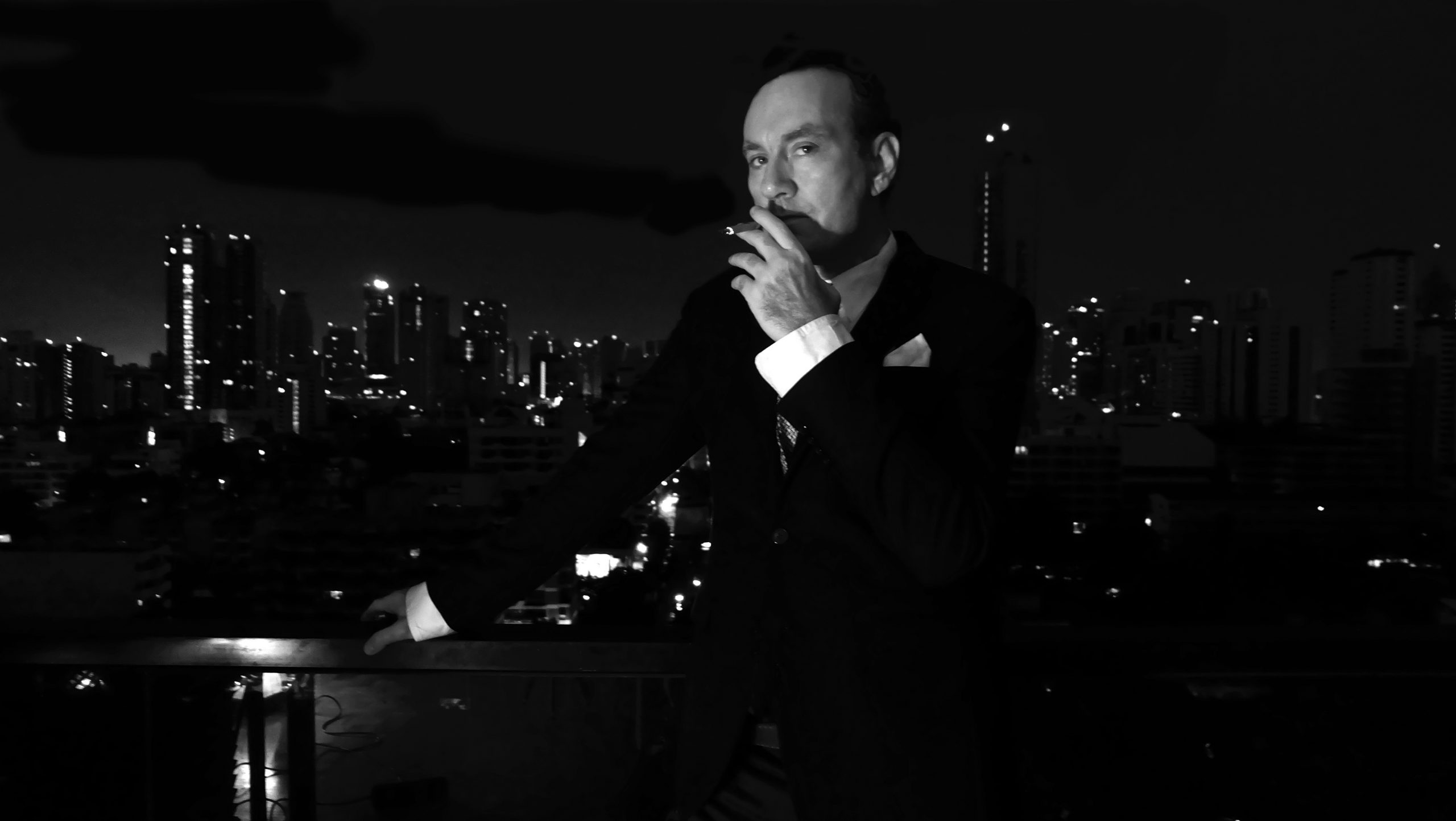
By the end of the weekend, I was enormously grateful to Ms. Beatrice and her foundation. I had to say goodbye to Osborne; he was flying to London for a few days before coming back for a resident fellowship at the foundation’s villa in the Vallombrosa area. It was a shame, he had become a friend of sorts and would not be attending the closing lunch at the Villa on the Sunday.
It was a beautiful day, and at the end of a long strada sterrata the villa subtly appears in between rich trees. I sit around with some of the other volunteers, sipping Franciacorta, and I think about how appealing this world feels, how engaging all of the festival’s attendees were. The most important thing was that it did not feel out of place at all in the midst of lush Tuscany or its capital’s monumental spaces. I sit back and smile at Alessandro Raveggi, the editor of The FLR, when he catches my eye. Buona lettura.
/
In memory of John Mair
“This is what I wait for. I expect everything and nothing, I will put out nothing and less, I will listen and I will speak and then yes we will enjoy together I should hope. Love, John”
(John Moray Mair, 1996-2019)
“It was with a heavy heart that I learned of John’s death, and with a certain disbelief. Who had more life of life than him? Although our acquaintance began as a duty for him – he was assigned to chaperone me around Florence – we quickly became friends and conspirators in exploring the city’s pleasures, and I was charmed by his youthful passion and by his abiding respect for literature. What a true sweet prince he was, and I for one will never forget him.”
(Lawrence Osborne)
This article was updated on June 6, 2019 with a memorial note to remember John Mair on the news of his recent death.


